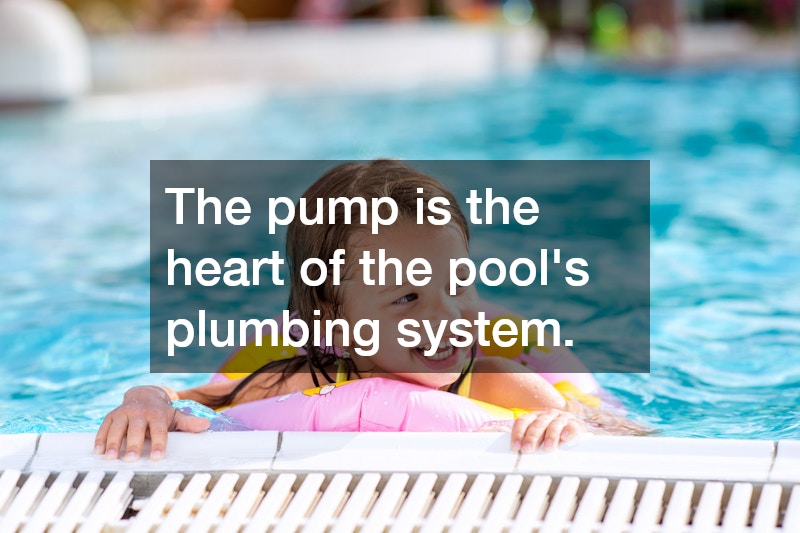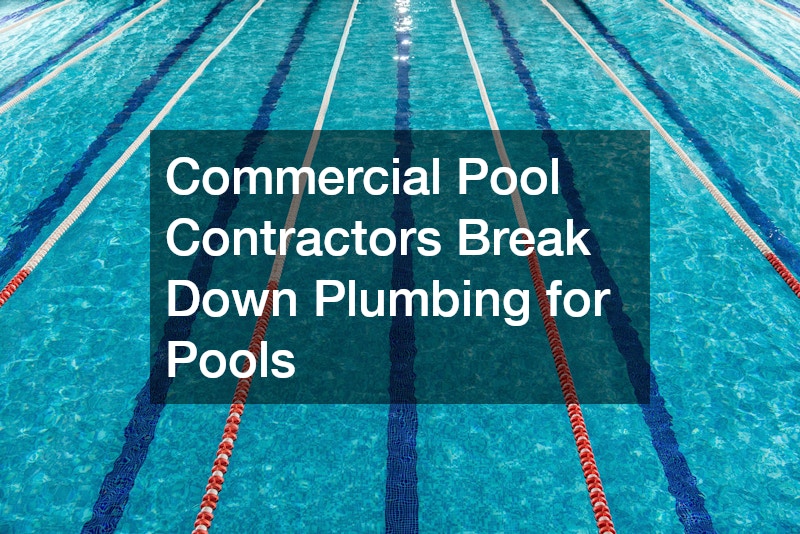When it comes to constructing or maintaining a commercial pool, one of the most critical aspects is the plumbing system. Commercial pool contractors often face the challenge of designing and implementing a plumbing setup that ensures the pool runs efficiently, remains safe, and meets the necessary regulatory requirements. Plumbing for pools isn’t just about water flowing in and out; it involves complex systems that handle water filtration, heating, circulation, and waste management. Understanding the intricate plumbing components of a pool can help commercial pool owners, property managers, and even users better appreciate the technicalities that go into making pools function properly.
Key Components of Pool Plumbing
Commercial pool contractors typically break down the plumbing system into several key components, each serving a unique function. These components include the pump, filter, heater, skimmers, drains, return lines, and valves.
Here’s a closer look at these crucial parts:
-
The Pool Pump The pump is the heart of the pool’s plumbing system. It is responsible for circulating the water throughout the pool, ensuring that it moves through the filtration system and back into the pool. Pumps come in various sizes and power ratings, depending on the size of the pool and the volume of water that needs to be moved. A properly sized pump is crucial for maintaining optimal flow rates and energy efficiency. Commercial pool contractors carefully select pumps that can handle large-scale operations, ensuring water circulates quickly and thoroughly.
-
The Pool Filter The pool filter is another essential part of the plumbing system. It removes dirt, debris, and other contaminants from the water. There are several types of pool filters, including sand filters, cartridge filters, and diatomaceous earth (DE) filters. Commercial pool contractors often prefer DE or sand filters for larger pools due to their ability to handle higher flow rates and provide efficient filtration. Regular cleaning and maintenance of the filter are necessary to keep the pool water pristine and healthy.
-
The Heater Heating the pool water is vital for commercial pools, particularly for those in colder climates or those that remain open year-round. Pool heaters come in various types, including gas heaters, electric heaters, and solar-powered heaters. The heater ensures that the water remains at a comfortable temperature for swimmers. Commercial pool contractors often choose energy-efficient options that minimize operating costs while maintaining optimal temperature levels.
-
Skimmers and Drains Skimmers are devices that help remove floating debris from the water’s surface. They are connected to the pool’s circulation system and direct debris to the filter for removal. Drains, on the other hand, remove the water that settles at the bottom of the pool. Proper placement and maintenance of skimmers and drains are critical to ensure efficient water flow and prevent the buildup of debris or contaminants.
-
Return Lines Return lines direct clean, filtered water back into the pool after it passes through the pump and filter. These lines are placed at strategic locations around the pool to promote proper circulation and even distribution of water. Return jets are often adjustable, allowing pool operators to fine-tune the flow and enhance water movement.
Pool Plumbing Design and Installation
Designing and installing the plumbing system for a commercial pool requires careful planning. Commercial pool contractors work with architects and engineers to design a system that accommodates the pool’s size, expected usage, and local regulations. Proper planning ensures that the plumbing is efficient, durable, and compliant with safety codes.
One of the main considerations is water flow. A commercial pool’s plumbing system must be able to move large quantities of water quickly and efficiently. It’s also crucial to ensure that the plumbing design promotes thorough circulation, so water is consistently filtered and cleaned. Additionally, the placement of drains and skimmers must be carefully considered to prevent stagnation and ensure proper water flow throughout the pool.
Another key factor in plumbing design is the selection of materials. Commercial pool contractors use high-quality, durable materials to ensure the longevity of the system. Materials like PVC and CPVC are commonly used for pool plumbing due to their resistance to corrosion and their ability to withstand the harsh chemicals often found in pool water.
Conclusion
In conclusion, plumbing for commercial pools is a complex and integral part of the pool’s overall operation. From the pump and filter to skimmers, drains, and return lines, every component must be carefully designed, installed, and maintained to ensure the pool’s longevity, safety, and efficiency. Commercial pool contractors are the experts who break down the intricate details of pool plumbing and ensure that the system runs smoothly, keeping pools clean, safe, and enjoyable for users. Whether building a new pool or upgrading an existing system, working with skilled contractors guarantees that the plumbing will meet all functional and regulatory requirements, providing reliable service for years to come.
.


